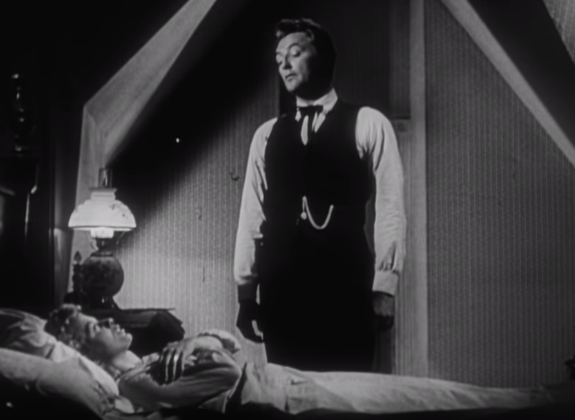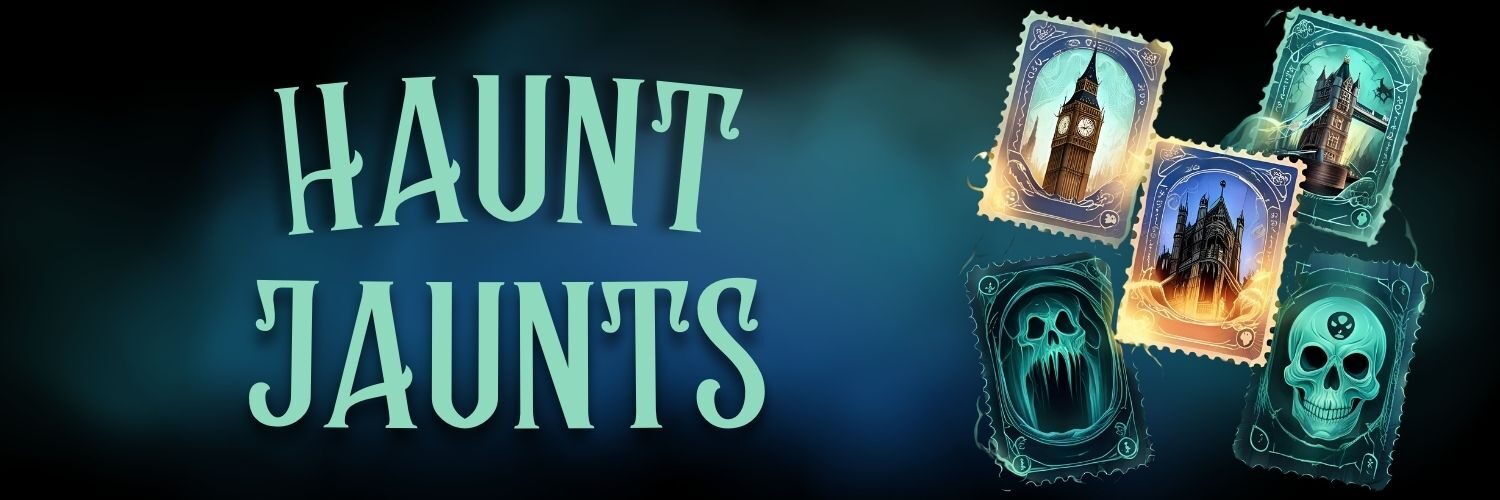
It’s been almost 70 years since Night of the Hunter premiered in 1955. By the time the remade version is released, it will have hit its platinum anniversary.
That’s right. They’re redoing the classic (and terrifying!) thriller starring Robert Mitchum. (“They” being Scott Derrickson, who’s working on a script with C. Robert Cargill.)
When I learned about it, I wondered a couple of things. One is something I often wonder about but had never looked into before: “Was Night of the Hunter the first movie about a serial killer?”
The article about the remake in Inverse made me think about that again. But it also posed—and answered—another question I had never even considered asking: “Did a real-life killer inspire the one in Night of the Hunter?”
Usually, that’s among the first questions I ask. Like I did when I learned about the Camp Scott Girl Scout murders. Did it inspire the movie Friday the 13th? And what about the Grabber from The Black Phone? Was he inspired by a real-life sicko? How had I never thought to wonder about that in the case of Night of the Hunter?
Naturally, this all led me down a rabbit hole. Here’s what I discovered.
Night of the Hunter Wasn’t the First Serial Killer Movie
According to AV Club, there were actually a few serial killer movies decades before Night of the Hunter. Some often regard Fritz Lang’s 1929 M as the first, but AV Club noted there was one even a couple of decades before that.
Os Crimes de Diogo Alves (The Crimes of Diogo Alves), a 1909 Portuguese film, was “based on the exploits of a notorious 19th-century criminal” of the same name, Diogo Alves. After he was hung in Lisbon, Portugal, in 1841, his head was preserved. Scientists intended to study his brain. But due to its intact state, it doesn’t seem like they ever did.
AV Club mentioned you could see his head on display in the University of Lisbon’s Faculty of Medicine. I had to look into that! However, Atlas Obscura noted the part of the university where the head is kept “is only open to students and is not typically accessible by the public.” But Atlas Obscura did include photos of it on their site if you want to see what it looks like that way.
Night of the Hunter’s Real-Life Inspiration
Before Night of the Hunter became a movie, it was a book by Davis Grubb. In the movie, Robert Mitchum plays the predatory preacher Harry Powell, who Grubb based on the real-life killer Cassanova, Harry Powers.
Harry Powers and His Victims
Powers wasn’t his given name, though. According to West Virginia Explorer, he was born Herman Drenth in 1892. He and his family emigrated to Cedar Rapids, Iowa, in 1910. Circa 1924, he moved to Quiet Dell, West Virginia, where he went under the assumed name Harry Powers.
He ended up taking out lonely heart ads to prey on wealthy widows. I’m not sure if one of his adopted personas was ever that of a preacher like the character in Night of the Hunter is. He seemed to favor presenting himself as Oklahoma oil stock promoter Cornelius O. Pierson.
His first victim was Asta Eicher from Park Ridge, Illinois. He went to visit her and take her away for a “romantic interlude” while someone stayed behind to watch her three children, Greta, Harry, and Annabel. Soon after, the sitter received a letter from Asta saying Pierson would be arriving to pick up the children. When Pierson got there, he tried to use Harry to withdraw funds from Asta’s bank, but that failed. Asta and her children would never be seen again.
He also duped Dorothy Lemke from Northboro, Massachusetts, convincing her to move to live with him in Iowa, even though the address he gave her to send her things to was in West Virginia. Somehow he explained it to her and she showed up. She also was then never seen alive again.
The “Murder Garage”
People back in Illinois questioned Asta’s disappearance. All they knew was that she had gone away with a man named Cornelius O. Pierson, who lived in Clarksburg, West Virginia. Police eventually surmised no one named Cornelius O. Pierson lived in Clarksburg, but a grocer named Harry Powers certainly matched his description.
A search warrant was obtained, and that’s how they discovered four rooms under his new garage.
In the shadowy damp within the underground chamber, they found the small bloody footprint of a child, a burned bank book, and blood-soaked hair and clothing.
Then they dug up a freshly created ditch behind his house and found five bodies. Asta and her three children were among them.
Trial and Execution
Is the restless spirit of Harry Powers among those rumored to haunt the West Virginia State Penitentiary in Moundsville? Possibly. He was arrested in August 1931 and was moved to Moundsville in September of that same year after a lynch mob tried to remove him from the local jail.
His trial was held at the end of the year, which resulted in him being sentenced to death on December 12, 1931. He was hanged at Moundsville on March 18, 1932.
The Knuckle Tattoos and the Remake
Did Harry Powers sport the love/hate knuckle tattoos like Harry Powell did in the movie? Did that character in the book even have such markings? Or was it a Hollywood invention?
That’s the new question I’m wondering. I saw no mention of the distinctive feature in anything I read about Powers, so I think it was created for dramatic effect in the movie.
It’s also made me wonder how the remake will handle it. Tattoos were pretty taboo back in 1955 and reserved for a more unsavory element. They certainly weren’t the acceptable fashion statement they’ve become these days. Where the love/hate knuckles back in the mid-20th century were pretty shocking, they’re less so these days. How will the remake handle them?
I don’t know, but it seems to be in good hands. Among their other credits, Scott Derrickson and C. Robert Cargill co-wrote The Black Phone alongside Joe Hill. Like he also did with The Black Phone, Derrickson will direct.
I have faith that if anyone can do a Night of the Hunter remake justice, they can. Especially when you take into consideration a tweet Cargill made about the project: “For those unfamiliar, NIGHT OF THE HUNTER was based on a novel that was *MUCH DARKER* than the 1950s would allow. Very excited about this project and thrilled we can finally talk about it.”
Keywords being “much darker.” We could be in for a rare treat where the remake is as good (or better) than the original.
It likely won’t hit theaters until 2026, so we won’t find out soon. But it is something to look forward to. (The sequel to The Black Phone, which is targeted for release in 2025, is also something to look forward to.)
Check-In
Did you know a real-life serial killer had inspired Night of the Hunter?
Courtney Mroch is a globe-trotting restless spirit who’s both possessed by wanderlust and the spirit of adventure, and obsessed with true crime, horror, the paranormal, and weird days. Perhaps it has something to do with her genes? She is related to occult royalty, after all. Marie Laveau, the famous Voodoo practitioner of New Orleans, is one of her ancestors. (Yes, really! As explained here.) That could also explain her infatuation with skeletons.
Speaking of mystical, to learn how Courtney channeled her battle with cancer to conjure up this site, check out HJ’s Origin Story.

I never made the connection between the lonely hearts killer IRL and The Night of the Hunter. I’m not surprised, though. There are so many bizarre crimes in the news that are suitable for fictionalizing if you’re a crime writer.
“There are so many bizarre crimes in the news that are suitable for fictionalizing if you’re a crime writer.” Agree, agree, agree, Priscilla! Well said!!!